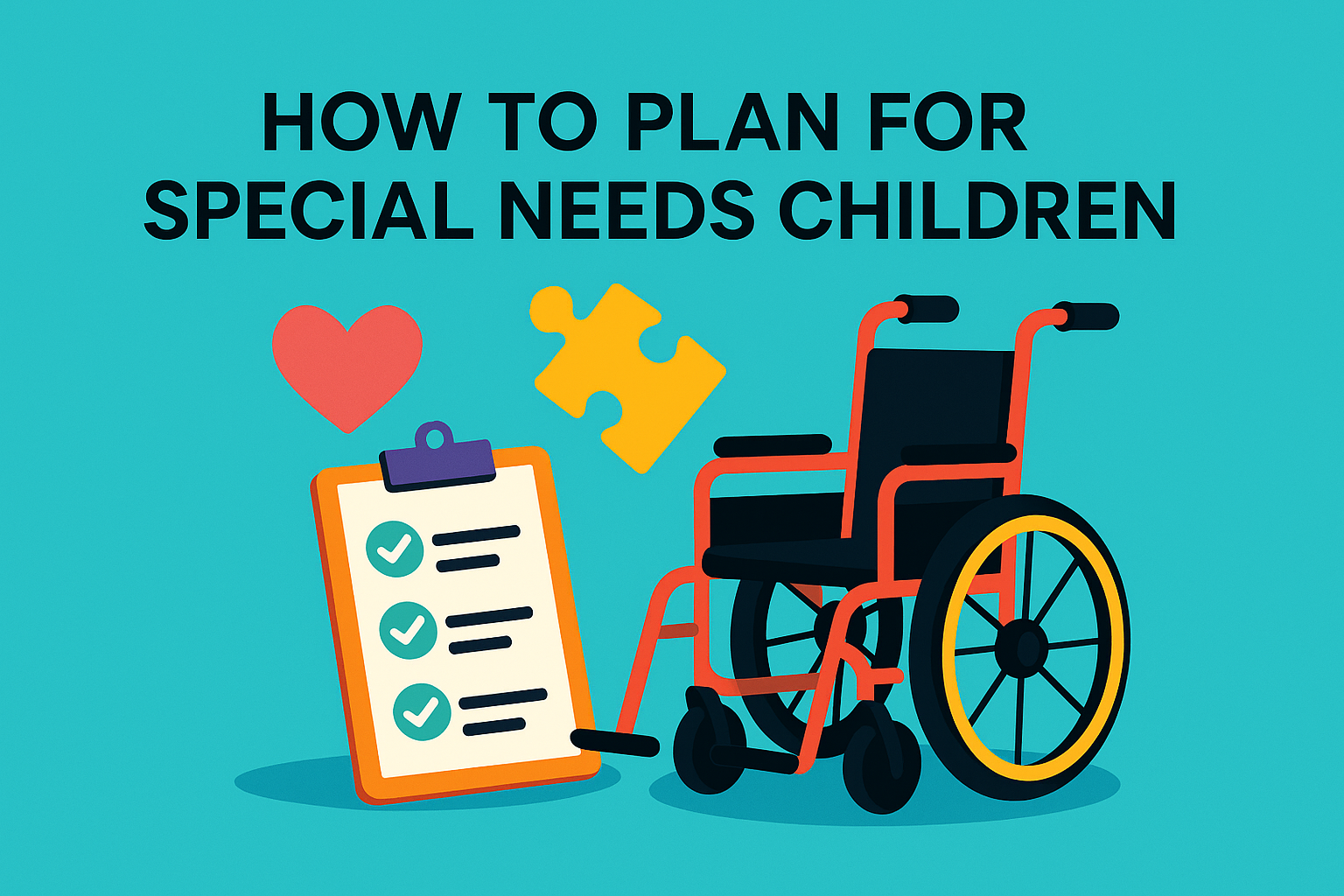Planning for a child with special needs isn’t just about doctor appointments and therapy schedules—though there will be plenty of those. It’s about creating a framework that supports your child’s unique journey while keeping your family grounded and hopeful. And honestly, it’s one of those things that looks overwhelming from the outside but becomes manageable once you break it down into pieces you can actually handle.
Every family’s situation is different, but there are some universal strategies that can make this path less daunting and more purposeful. Let me walk you through the essential areas that deserve your attention, starting with the foundation that everything else builds on.
Getting the Right Support Team Together
You can’t do this alone, and you shouldn’t try. Building a strong support network starts with assembling a team of professionals who understand your child’s specific needs, but it extends far beyond medical providers.
Your pediatrician should be someone who listens, communicates clearly, and coordinates well with specialists. If your current doctor treats your concerns as minor or rushes through appointments, it might be time to find someone new. You need a medical advocate, not just someone who writes prescriptions.
Early intervention services can be game-changers, especially for children under three. These programs provide therapy services at home or in community settings, often at no cost to families. The earlier you start, the better the outcomes typically are—but don’t panic if you’re getting a later start. Progress happens at any age.
Educational advocates help navigate the school system and ensure your child receives appropriate services. These professionals understand special education law and can attend IEP meetings with you, helping translate educational jargon and making sure your child’s needs are properly addressed.
But your support team isn’t just professionals. Other parents who’ve walked similar paths often provide the most practical advice and emotional support. Support groups, both in-person and online, connect you with people who truly understand the daily challenges and victories that come with raising a special needs child.
Financial Planning That Actually Works
The financial reality of special needs parenting hits differently than regular family budgeting. Therapy sessions, specialized equipment, medications, and educational supports add up quickly, often in ways that insurance doesn’t fully cover.
Special needs trusts protect your child’s future eligibility for government benefits while allowing you to leave them financial resources. These trusts can pay for things like education, therapy, recreation, and medical care that government programs don’t cover, without jeopardizing access to SSI or Medicaid.
ABLE accounts work like 529 education savings plans but for disability-related expenses. You can contribute up to $16,000 annually (as of 2022), and the money grows tax-free when used for qualified disability expenses. These accounts don’t count against benefit eligibility limits, making them incredibly valuable planning tools.
Life insurance becomes more complex when you have a special needs child. You need enough coverage to fund their care if something happens to you, but you also need to structure it carefully so the proceeds don’t interfere with government benefits. Working with a financial planner who understands special needs planning is worth the investment.
Don’t forget about flexible spending accounts (FSAs) and health savings accounts (HSAs) if your employer offers them. These let you pay for medical expenses with pre-tax dollars, which can result in significant savings over time.
Educational Rights and Advocacy
The special education system can feel like a maze designed by people who’ve never actually worked with children. But understanding your rights and the process can help you navigate it more effectively.
Individualized Education Programs (IEPs) are legal documents that outline your child’s educational goals and the services the school will provide to help them reach those goals. These aren’t suggestions—they’re legally binding agreements that schools must follow.
The evaluation process determines your child’s eligibility for special education services. You can request an evaluation at any time if you have concerns about your child’s progress. Schools have specific timelines they must follow, and you have the right to disagree with their findings and request independent evaluations.
504 plans provide accommodations for children who don’t qualify for special education but still need support to access their education. These might include things like extended time on tests, preferential seating, or breaks during the day.
Transition planning becomes crucial as your child approaches adulthood. Schools are required to begin transition planning by age 16 (earlier in some states), focusing on post-secondary education, employment, and independent living skills.
Daily Life Management Strategies
Creating routines and systems that work for your family reduces stress and helps everyone know what to expect. But flexibility within structure is key—rigid schedules can create more problems than they solve.
Visual schedules and social stories help many children understand expectations and transitions. These tools break down complex activities into manageable steps and can reduce anxiety around new situations or changes in routine.
Sensory considerations affect many aspects of daily life, from clothing choices to meal planning to recreational activities. Understanding your child’s sensory preferences and challenges helps you create an environment where they can thrive.
Communication systems vary widely depending on your child’s needs. Some children benefit from picture exchange systems, while others use speech-generating devices or sign language. The key is finding what works for your child and ensuring consistency across all environments.
Behavior management strategies should focus on teaching appropriate behaviors rather than just stopping inappropriate ones. Positive reinforcement, clear expectations, and consistent responses help children learn and feel secure.
Preparing for the Future
Guardianship decisions become relevant as your child approaches 18. Not all young adults with special needs require guardianship—some may be able to make decisions independently or with minimal support. Limited guardianship preserves as much autonomy as possible while providing protection in areas where it’s needed.
Residential planning involves thinking about where your child will live as an adult. Options range from independent living with minimal support to group homes to remaining in the family home with services. Starting these conversations early gives you time to explore options and get on waiting lists if necessary.
Employment preparation should begin during the school years through job training programs, internships, and skill development. Many adults with special needs can work in competitive employment with appropriate supports, while others thrive in supported employment settings.
Healthcare transition planning ensures continuity of care as your child moves from pediatric to adult healthcare providers. This process should start several years before the transition to allow time for your young adult to develop relationships with new providers and understand their own health needs.
Taking Care of Yourself and Your Family
You can’t pour from an empty cup, though it sometimes feels like that’s exactly what parenting a special needs child requires. Self-care isn’t selfish—it’s necessary for sustained caregiving.
Respite care gives you breaks to recharge, whether for a few hours or a few days. Many communities offer respite services, and some insurance plans cover these services. Even informal arrangements with family or friends can provide crucial breathing room.
Mental health support helps you process the complex emotions that come with special needs parenting. Grief, advocacy fatigue, and chronic stress are common experiences that benefit from professional support.
Sibling considerations matter too. Brothers and sisters of special needs children often take on responsibilities early and may need their own support and attention. Sibling support groups and individual attention help maintain family balance.
Building Connections and Community
Isolation is one of the biggest challenges families face, but it doesn’t have to be permanent. Finding your community takes effort, but the connections you build become lifelines during difficult times.
Recreational activities designed for special needs children and families create opportunities for social connection and fun. Many communities offer adaptive sports, art programs, and social groups that welcome children with various abilities.
Faith communities, when inclusive, provide spiritual support and practical assistance. Many religious organizations have developed special needs ministries that offer respite care, support groups, and inclusive programming.
Online communities connect you with families worldwide who share similar experiences. While these relationships may be virtual, the support and information sharing can be invaluable, especially for rare conditions or when local resources are limited.
The Long View
Planning for a special needs child isn’t a one-time event—it’s an ongoing process that evolves as your child grows and circumstances change. What works for a five-year-old may not work for a fifteen-year-old, and that’s completely normal.
The goal isn’t to have everything figured out immediately. It’s to build a foundation that supports your child’s development while maintaining your family’s well-being. Some days will be harder than others, and some plans will need adjusting. That’s not failure—that’s life with any child, just with some extra complexities.
Remember that your child is first and foremost a child, with the same needs for love, belonging, and growth that all children have. The special needs are just one part of who they are, not the whole story. Planning well gives them the best chance to write their own story as they grow.


